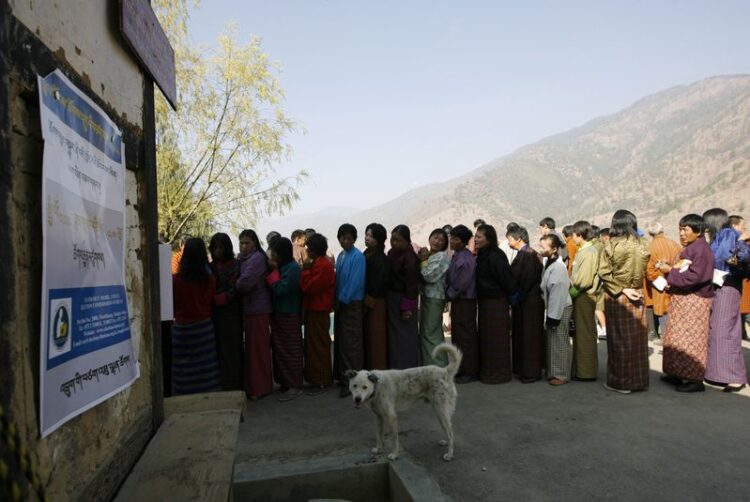In the Himalayan kingdom of Bhutan, citizens commenced voting on Tuesday for the final round of national parliamentary elections, marking the formation of the nation’s fourth government in the 15 years since the establishment of democracy. The ongoing impact of COVID-19 and the imperative for economic growth take center stage in the electoral discourse.
Renowned for its unique Gross National Happiness (GNH) index, which incorporates non-traditional metrics like recreational activities and emotional well-being, Bhutan’s democratic journey began in 2008, two years after the abdication of former King Jigme Singye Wangchuck in favor of his Oxford-educated son, Jigme Khesar Namgyel Wangchuck.
The Election Commission of Bhutan (ECB) reported that voting commenced at 8 a.m. (0200 GMT) and is scheduled to conclude at 4 p.m., with the announcement of results expected by Wednesday.
Despite its small population of fewer than 800,000, Bhutan, sandwiched between China and India, holds significant economic ties with its southern neighbor, India, which serves as its primary donor and economic partner. The nation is currently engaged in border dispute negotiations with China, closely monitored by India, although the matter has not been a focal point during the election campaigns.
Approximately half a million eligible voters will choose from 94 candidates fielded by two political parties, namely the Bhutan Tendrel Party (BTP) and the People’s Democratic Party (PDP). The latter emerged victorious in the primary round held in November.
Economic growth stands out as a paramount concern for the Bhutanese electorate, with unemployment and inadequate salaries for those employed at the forefront of public discourse. Both political parties share similar election manifestos, emphasizing the need to bolster the $3 billion economy, which heavily relies on aid and tourism. Despite lifting pandemic restrictions in September 2022, the tourism sector is yet to fully recover.
Common themes in the manifestos include harnessing hydro-electric power potential, stimulating agricultural growth, and addressing climate change risks in this environmentally conscious, carbon-negative nation. Both BTP and PDP pledge to promote investment and bolster foreign exchange reserves, which stood at $464.66 million in October, compared to $759.16 million a year earlier, according to the central bank.
Analysts caution that promises made by the political parties should be viewed skeptically, as past pledges have often gone unfulfilled. Bhutanese voters, described as mature and discerning, are expected to cast their ballots based on a cautious assessment of the candidates’ promises.
Founded in 2022 and led by a former bureaucrat, BTP faces off against the more established PDP, founded in 2007 by Tshering Tobgay, who previously led the government post the 2013 elections. In a nation where no party has secured a second term in office in the three elections since 2008, political parties recognize the sophistication of the Bhutanese electorate and the importance of earning their trust.

















Comments